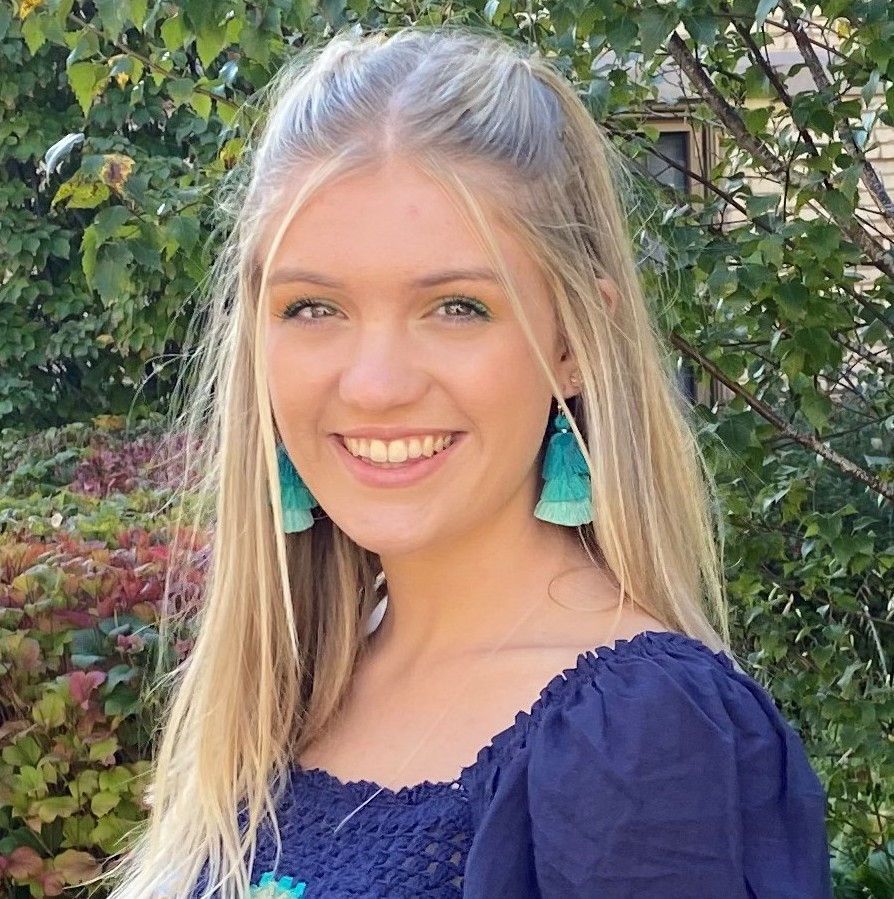Session 1: 10:00 AM - 11:30 AM
Panel B: Prioritizing Inclusion and Access: Case Studies in Strengthening Education for Vulnerable Populations
Moderator: Christine Beggs

The Toughest Classroom in the World: Analyzing the Differences in Refugee Teacher Well-Being
Brookelyn Hanley, University of Notre Dame
Abstract
Refugee classrooms have been called the toughest teaching/learning environments, mainly because a great amount of students as well as teachers are dealing with past trauma on top of stressors stemming from displacement and ongoing discrimination in refugee camp settings. Refugee student’s education in host nations is usually entrusted to both refugee and non-refugee (host country) teachers, but it is supported by an unequal yet legal system where the former receive less compensation, training, and support than the latter group despite numerous studies suggesting lower levels of psycho-social well-being among refugee teachers. These differences have been insufficiently examined, leaving a gap in understanding how refugee teachers cope with working in an environment in which they are forced to confront not just the shared trauma between their own and their students’ upbringings, but also the diminished support they receive in the workplace. Utilizing ethnographic data from repeated semi-structured interviews and participant observation collected between June and July 2022 from both refugee (n=4) and non-refugee (n=26) teachers at COBURWAS Primary and Secondary School and Kinakyeitaka Primary School, Kyangwali Refugee Settlement, Western Uganda, I argue that refugee teachers view their career of a teacher-educator as less if not equally as important as their role to being a mentor for their students. Refugee teachers are driven less by the compensation and instead more by their own empathy emerging from shared traumas of violent displacement and the daily stressors of informal yet protracted refugee ‘encampment’. Ironically, my data analysis shows that for refugee teachers, this role of mentorship, while an added responsibility in their already stressful career and personal life, might serve to foster hope and confidence, and may mitigate their own tendencies towards lower well-being. These results, if implemented effectively, may proliferate increased positive outcomes for both teachers and students in the refugee education sector.

Challenges in Inclusive Education of Disabled Children in Sierra Leone
Grace Ducat, University of Notre Dame
Abstract
Despite quality education being the United Nations sustainable development goal 4 with specific targets focused on the education of disabled children, children with disabilities across the world receive inadequate quality of education and educational experiences (Kuper et al. 2014; Zampaglione, 2009). Limited educational opportunities and negative cultural beliefs surrounding disabilities leads to diminished quality of life for people with disabilities. In 2021, Sierra Leone passed the policy on inclusive education with the goal of increasing the inclusion of disadvantaged children, including those with disabilities, in their education system. This research looks to assess the challenges faced by teachers of mainstream schools and their perceptions of the challenges faced by children with disabilities in Sierra Leone. This research was carried out over seven weeks during the summer of 2022 in Makeni, Sierra Leone and the surrounding villages at a variety of government, private, and specialized schools of all grade levels. The main methodologies used were over 80 semi-structured interviews with teachers, school administrators, and key members of the disability community conducted alongside three ethnographic observations of classes. Key challenges identified included lack of teaching and learning materials, such as glasses, hearing aids, and braille machines; difficulty with time and classroom management; lack of focus and motivation; and not having received training on disabilities and possible accommodations. These results, when taken in conjunction with the stigmatization of disabled persons in West African culture, provide important information on and potential solutions to increasing the inclusivity of education of disabled children in Sierra Leone.

Refugee Education & Accessibility
Abigail Mancuso, University of Notre Dame
Abstract
As a result of major global conflict and increased violence, levels of flight and refugeehood has increased exponentially over the past few decades, creating a global migration crisis. Notwithstanding the various dangers of migration and movement, refugees who land in foreign-speaking countries are systematically disadvantaged compared to those who speak the national language. Host countries that possess limited resources may be unable or unwilling to relocate funds and/or time to support refugee education, thus inadvertently perpetuating the cycle of harm against refugees.
Based on an academic internship this summer addressing language learning for African refugees planning to study in Italy, interns learned the importance of education accessibility and how to work with vulnerable populations through trauma-informed teaching and sustainable education practices over the summer. Following the education course, Notre Dame student interns developed lesson plans and course materials for refugee Italian education, fostering language and cultural growth. This presentation seeks to discuss the various aspects of refugeehood and the barriers it creates for education, highlights the importance of education accessibility, and finally examine the LTBC program and its effectiveness in breaking down academic obstacles.

The Intersectionality of Teenage Pregnancy and Girls’ Education
Mary Kate Temple, University of Notre Dame
Abstract
Early pregnancy can alter the trajectory of a girl’s life and can change the future the girl had envisioned for herself. Africa as a whole struggles with early pregnancy and has recorded the highest rates of teenage pregnancy (Asare et al. 2019). In Ghana, 16.1% of girls ages fifteen to nineteen were either pregnant or already had children in 2019 (The World Bank, 2022). Early pregnancy leads to many issues physically, socially, and mentally and can lead girls to drop out of school. Although students are allowed to remain in school during their pregnancy in Ghana, girls are still continuing to leave their education. Through interviews and a focus group conducted in Tamale, Ghana, this study attempts to answer what factors cause pregnant teenagers to drop out of school and what factors help them continue their education. Interviews were conducted with local primary and secondary school teachers, girls ages 13-19 who were pregnant or had given birth, and lastly, girls in their twenties who had given birth when they were a teenager. To find girl participants, the snowball method was used for recruitment. Preliminary findings have shown that parental care, stigmatization, and lack of finances lead to pregnant teenagers’ decision to drop out. However, parental support, child care, finances, determination, and changing schools all help young mothers decide to remain in school and continue their education.





